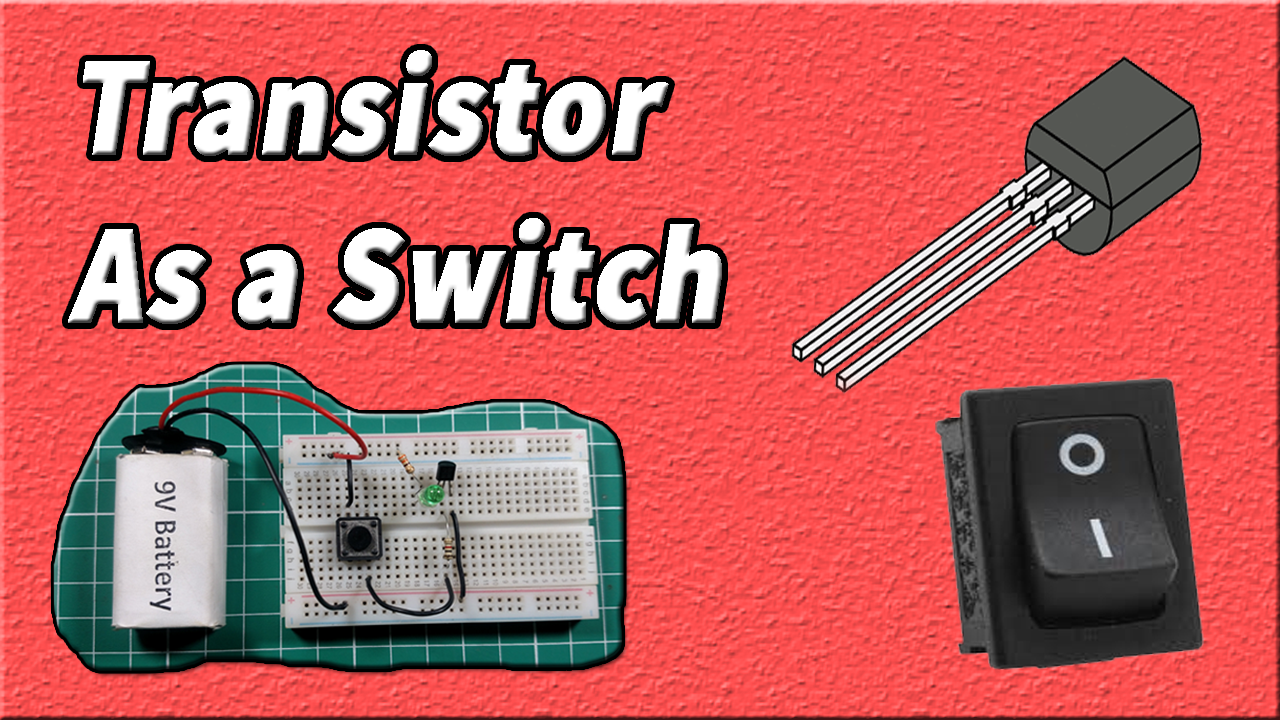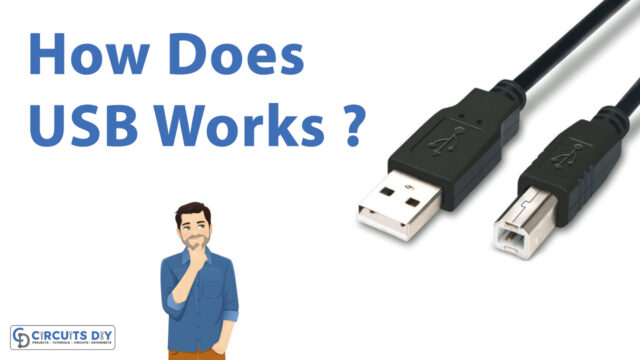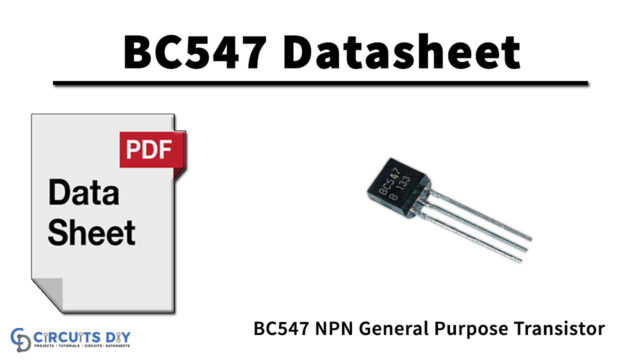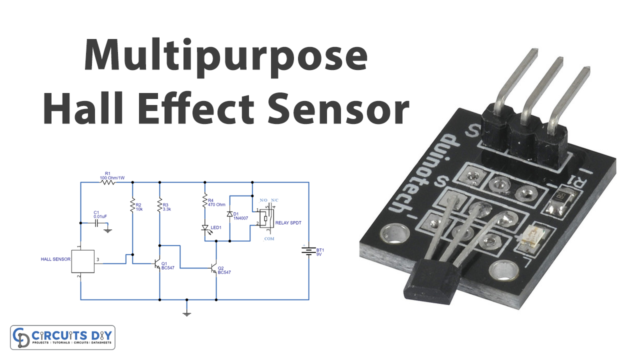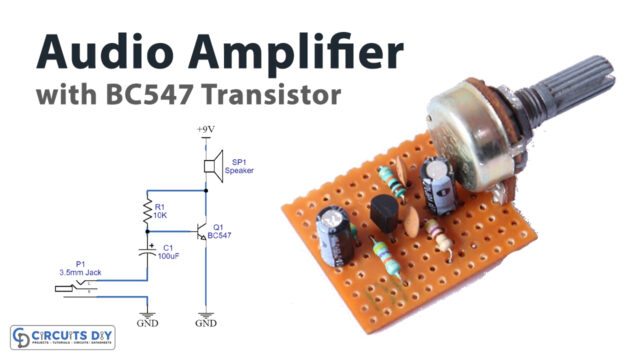A transistor is a device mostly used for switching purposes. As one of the sizable semiconductor devices, the transistor has found use in great digital applications such as embedded systems, digital circuits, and control systems. In both digital and analog domains transistors are substantially used for exceptional utility usage like amplification, logic operations, switching, and so on.
This article mainly concentrates on and offers a quick clarification of the transistor application as a switch. Transistor switches can be used to switch a low-voltage DC gadget e.g. LED ON or OFF through the use of a transistor in its saturated or cut-off state.
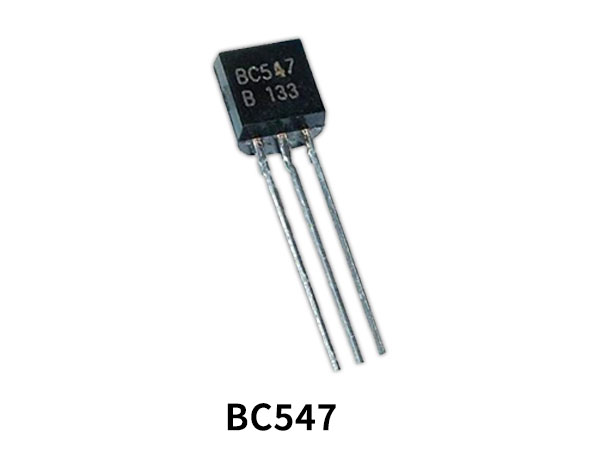
Hardware Components
The following components are required to make BC547 Transistor as a switch
| S.NO | Components | Value | Qty |
|---|---|---|---|
| 1. | Breadboard | – | 1 |
| 2. | Connecting Wires | – | 1 |
| 3. | Battery | 9v | 1 |
| 4. | NPN Transistor | BC547 | 1 |
| 5. | Switch/Push Button | – | 1 |
| 6. | Resistors | 1K, 330ohm | 1, 1 |
| 7. | LED | 5mm | 1 |
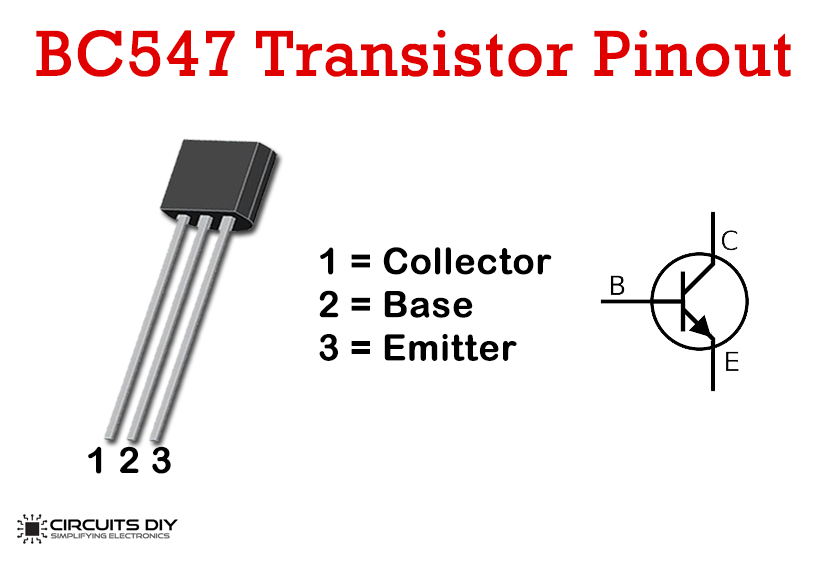
For a detailed description of pinout, dimension features, and specifications download the datasheet of BC547 Transistor
Useful Steps
Follow all steps carefully from the video tutorial at the end of this post (Highly Recommended).
- Place the Transistor on a breadboard
- Connect the Emitter to the ground of the battery
- Add LED & 330 Ohm Resistor to Collector of BC547
- Connect 1k Resistor and Switch to the Base of the transistor
- Power up the circuit with 9V Battery
Circuit Diagram
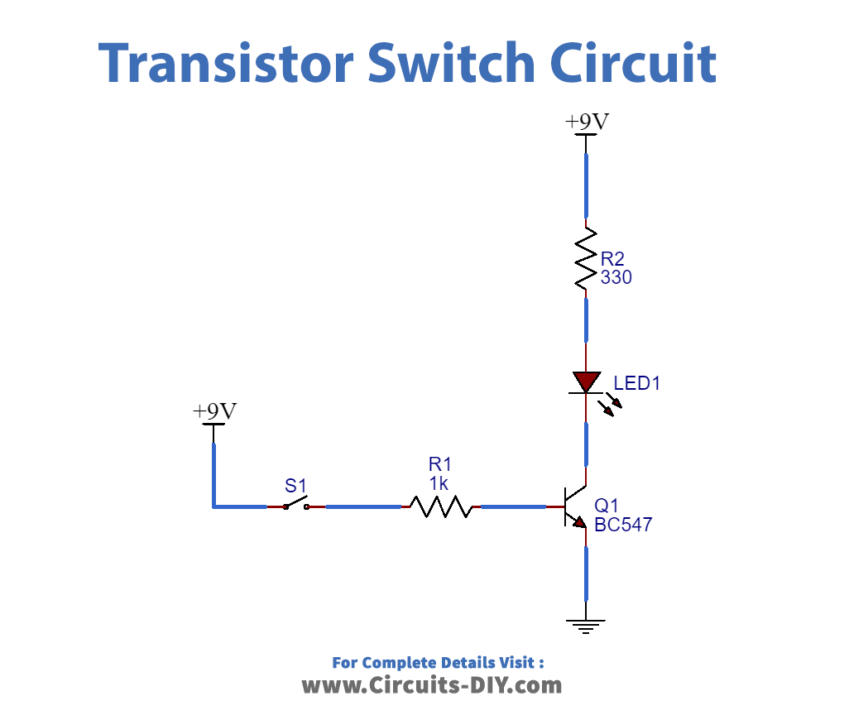
Working Explanation
The areas of operation for a transistor switch are acknowledged as the Saturation Region and the Cut-off Region. When we press the push button a small amount of current is entered into the base of the transistor which turns it ON when we release the push button the base current is no more present so a transistor will enter into its cut-off region and finally turn OFF.
Conclusion
- A transistor can be used to switch control relay, motor & lights
- Transistor ON in Saturation Region
- Transistor OFF in Cut-off Region


